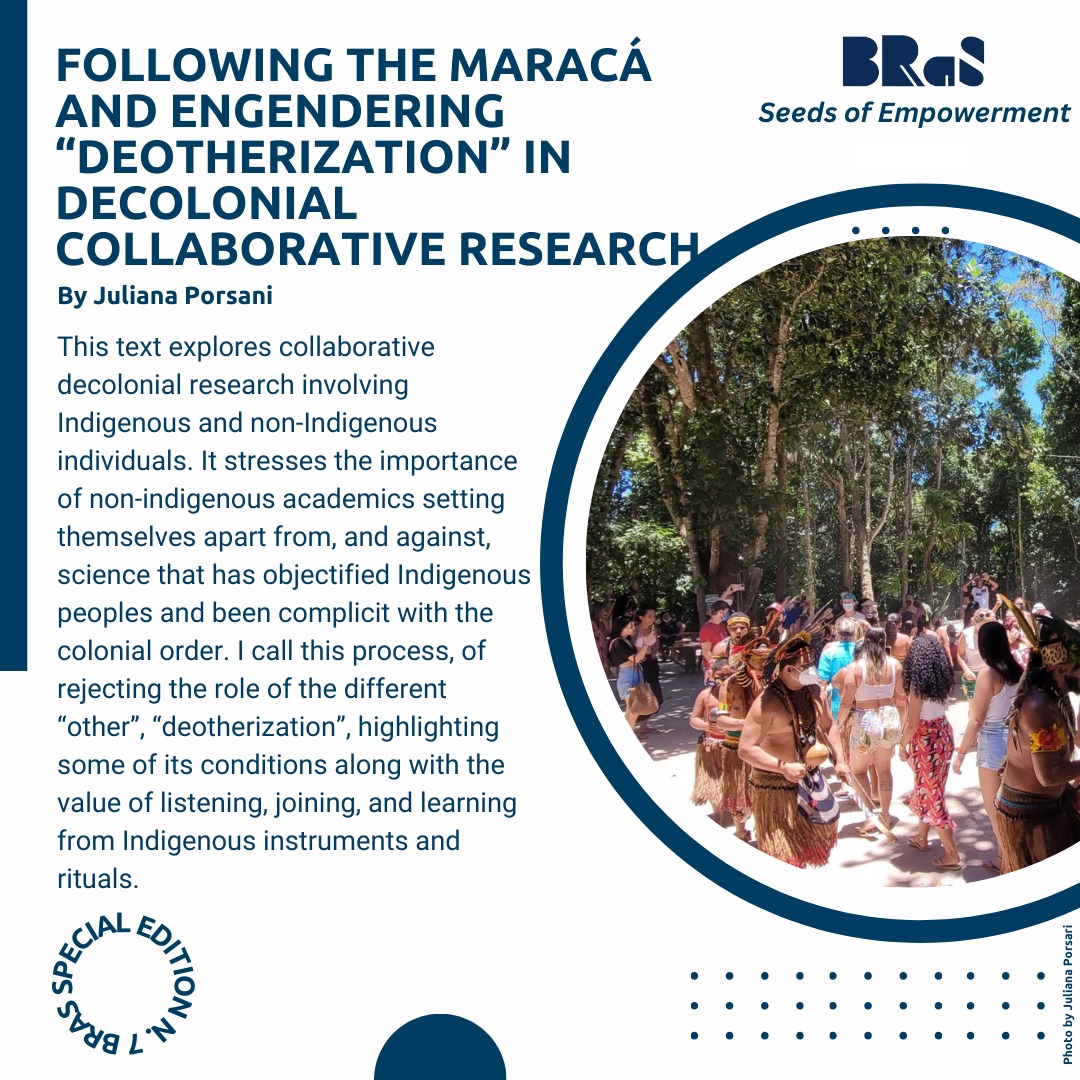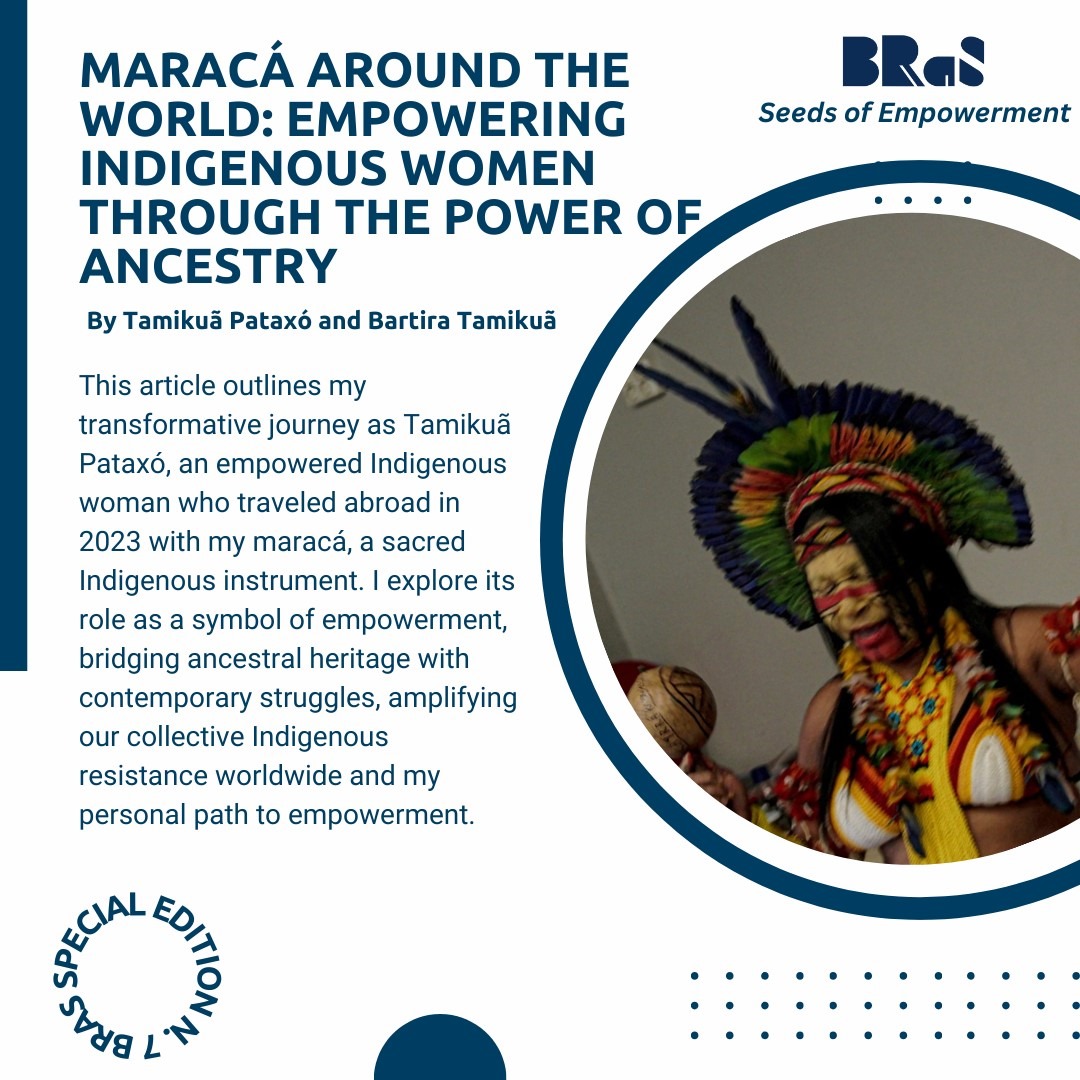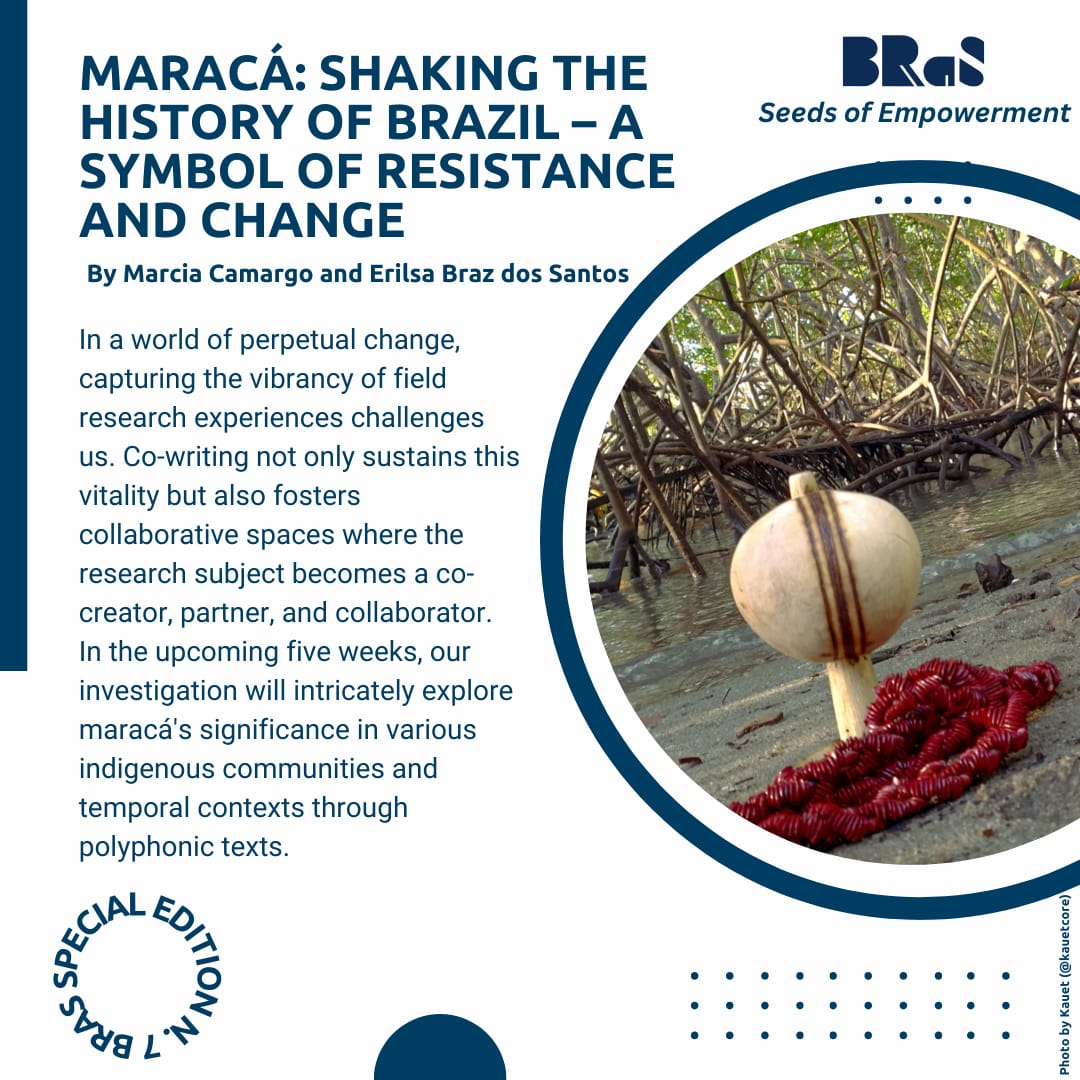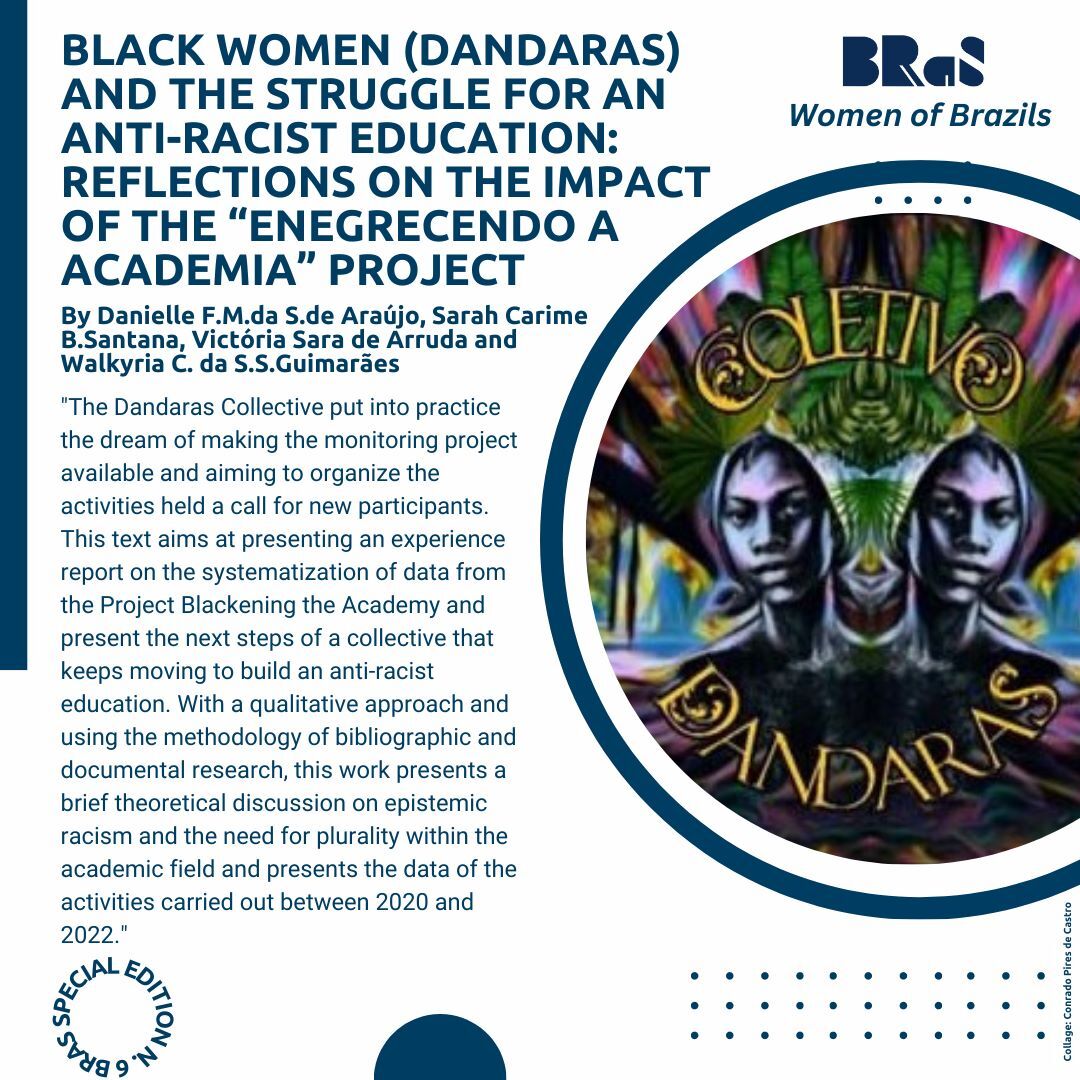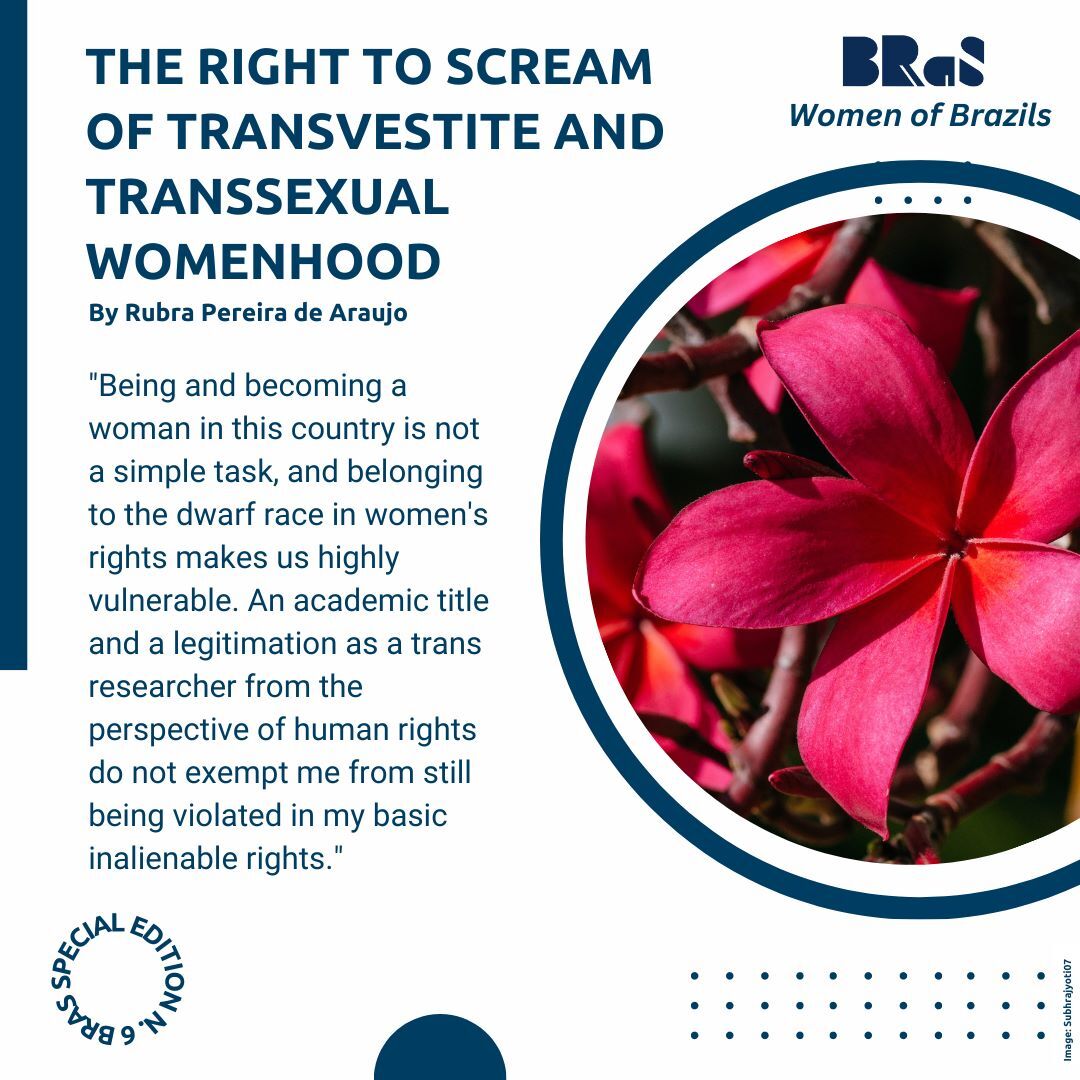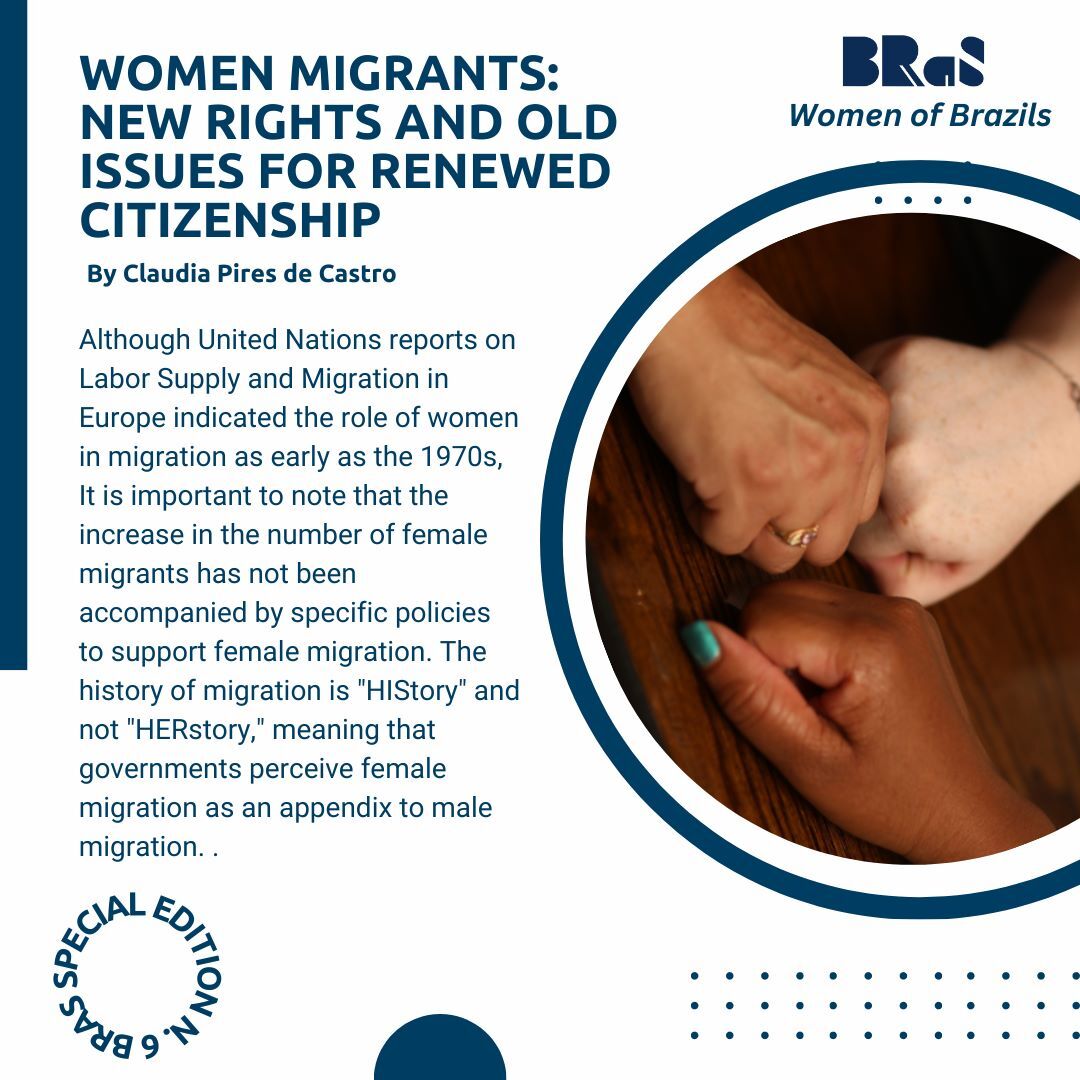Vol. 4 Num. 3
Special Edition
Following the maracá and engendering “deotherization” in decolonial collaborative research
The AWÊ, orchestrated by the maracá was a daily reminder of the rightful owner of the space that I sought...
Maracá in Resistance: Amplifying the Voices of Indigenous Women in the III Indigenous Women’s March
As an active participant in this historic event, I was deeply touched by the immense articulation and potential for transformation...
Maracá around the World: Empowering Indigenous Women through the Power of Ancestry
My transformative journey as Tamikuã Pataxó, an empowered Indigenous woman who crossed oceans to a destination that had previously existed...
Maracá: Shaking the History of Brazil – A Symbol of Resistance and Change
The world is in constant transformation, human beings, nature, earth are all in constant change, so how to write about...
Girl’s Feminism – networks of Power and Coping
In mid-2015, São Paulo students started a movement to occupy public schools in protest of the project to restructure the...
Jokana, culture, tradition and identity
Jokana means women in patxohã. Patxohã is a Brazilian indigenous language spoken by the pataxó people, mostly living in the...
Black women (Dandaras) and the struggle for an anti-racist education: Reflections on the impact of the “Enegrecendo a Academia” Project
The Dandaras Collective put into practice the dream of making the monitoring project available and aiming to organize the activities...
The right to scream of transvestite and transsexual womenhood
Being and becoming a woman in this country is not a simple task, and belonging to the dwarf race in...
Special Edition Women of Brazils. Women migrants: new rights and old issues for renewed citizenship
As a research and studies center, BRaS aims at promoting and supporting collaborative works. In the week we celebrate international...


